Responding to incidents
Our firefighters are highly trained, experienced, and industry certified to fight fires of all types, from those in structures to fires in vehicles and boats.
In addition to fighting fires, our firefighters routinely respond to calls for medical assistance, rescues of all kinds, hazardous material concerns, requests for public assistance, and more.
In all, we responded to 4,443 incidents in 2019, either on our own, or as part of a tri-municipal effort. Our average turnout time was 1 minute and 31 seconds, and our average response time was 5 minutes and 36 seconds.
Top 5 Incident Call Outs for 2019
Our firefighters respond to a wide range of incidents, including fires, accidents, rescues, and medical emergencies.
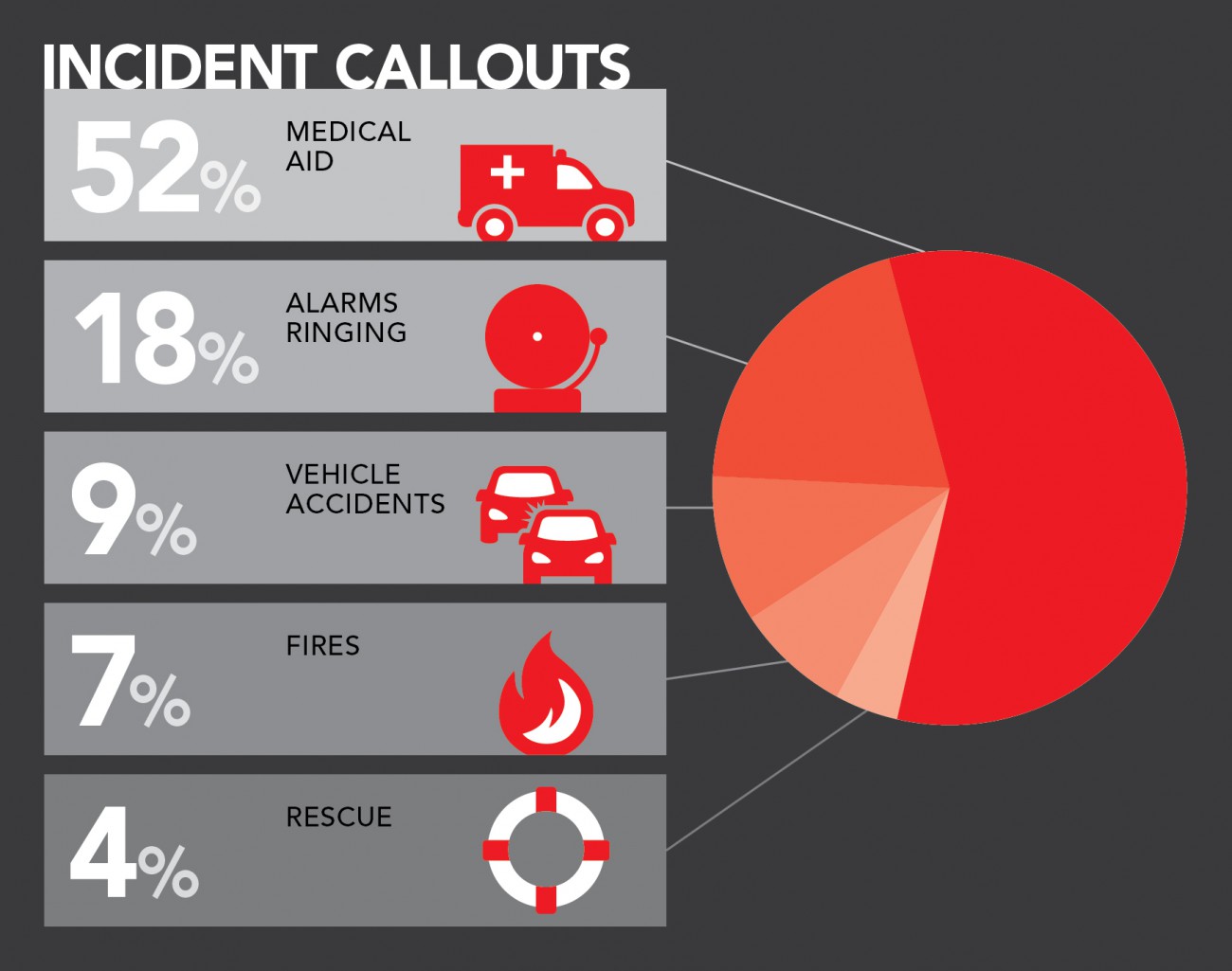
Response Time By Fire Station
Firefighters respond to incidents from one (or more) of five different fire stations, depending on the location and size of the emergency. The average response time in 2019 was 5 minutes and 36 seconds.
Response time is how much time elapses between when the fire station receives a call, and the first arrival of staff on the scene.
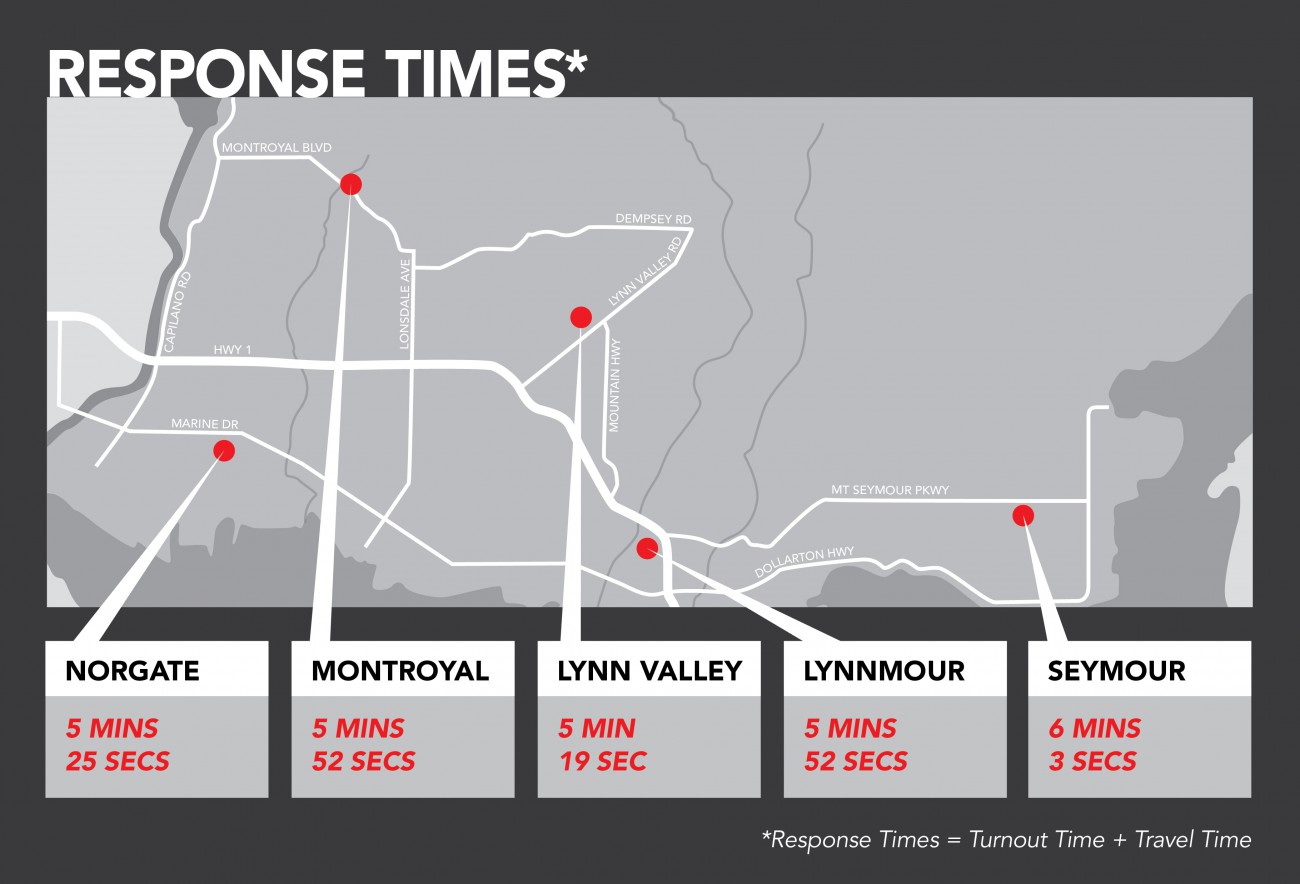
Turnout Time By Incident
The average turnout time in 2019 across all incident types was 1 minutes, 31 seconds.
Turnout time measures the firefighters’ ability to stop what they’re doing, get to the appropriate fire truck, put on their personal protective equipment, board the fire truck, and safely secure themselves for travel to the emergency.
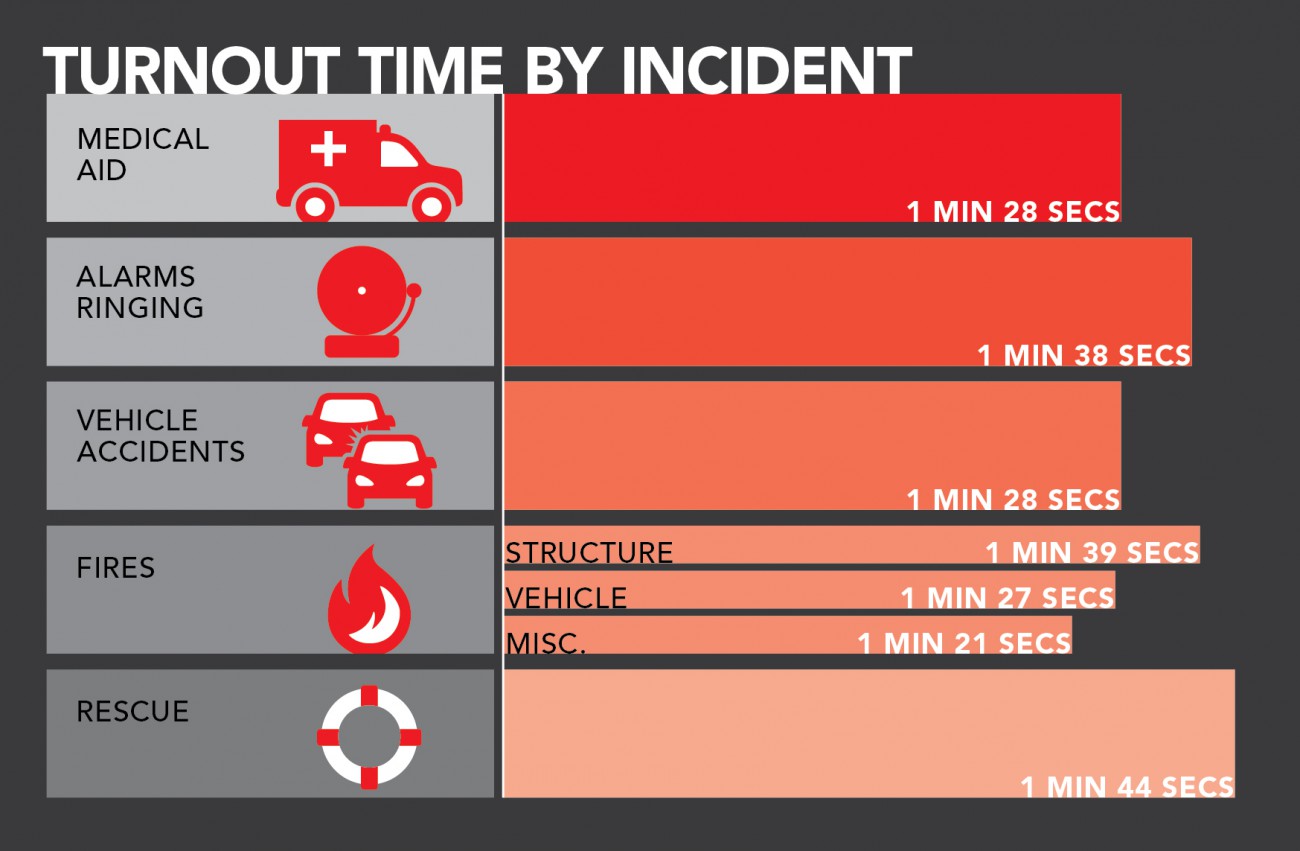
A Closer Look at Technical Rescues
In addition to its urban core, the District also includes hundreds of square kilometers of rugged mountain wilderness with dozens of hiking and mountain biking trails intersected by rivers and ravines.
We’re also home to Grouse Mountain and Seymour Mountain ski operations, as well as the Grouse Grind trail.
Our team is unique in Metro Vancouver for the number of highly technical rescues we execute each year, and the close mutual support relationship we have with the all-volunteer North Shore Rescue (NSR) team.
In 2019, we attended a total of 124 rescue incidents, with 19% of those incidents occurring in either Deep Cove/Quarry Rock or Lynn Canyon.
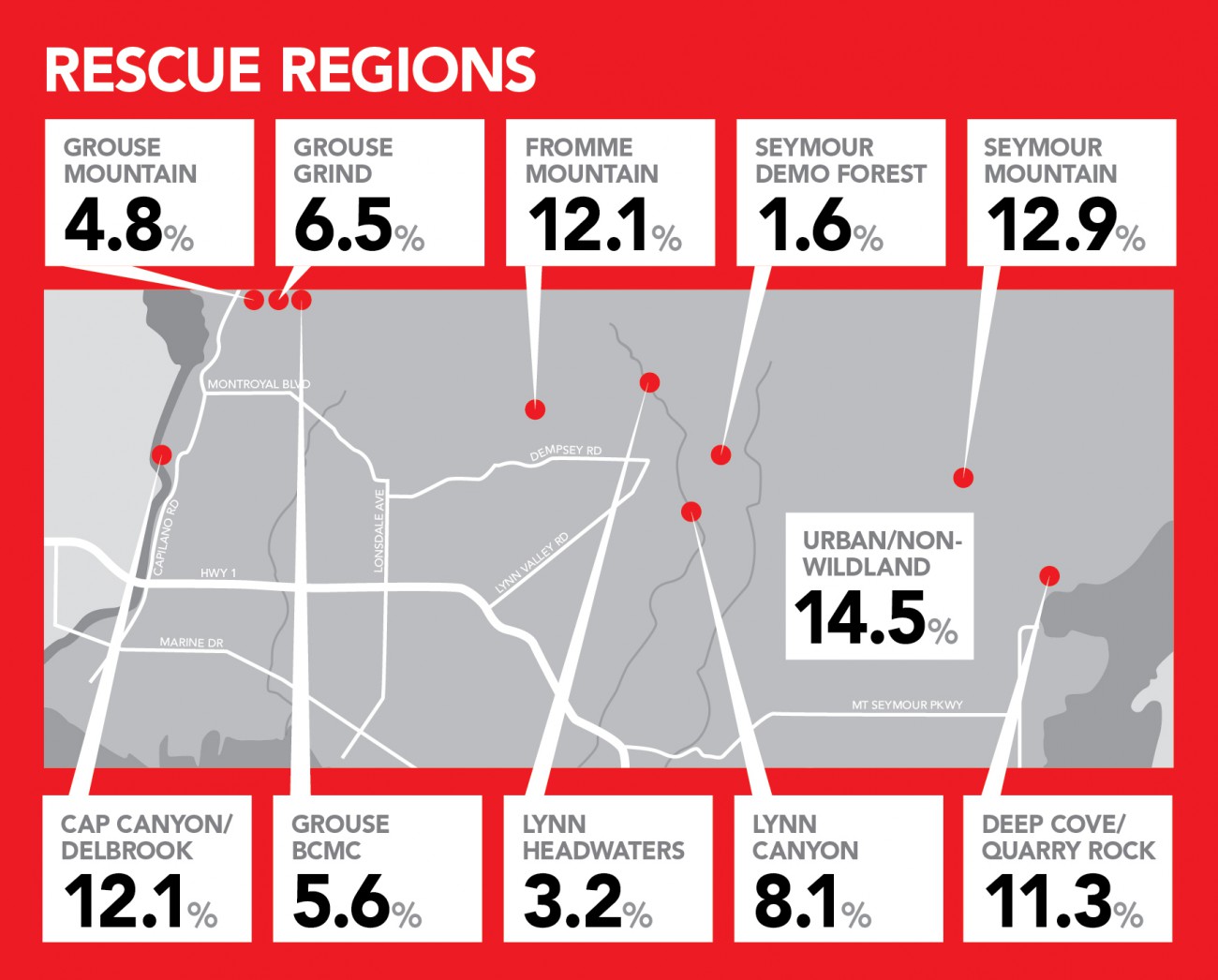
Typical North Shore Rescues
Of the 124 rescue incidents we responded to in 2019, over 69% were trail related (hikers or mountain bikers) followed by rescues in elevators, at 15%.
Our firefighters are trained to industry standards in high angle rope rescues and swift water rescue techniques which are used every summer in Lynn Canyon, Capilano Canyon, and at Quarry Rock in Deep Cove.
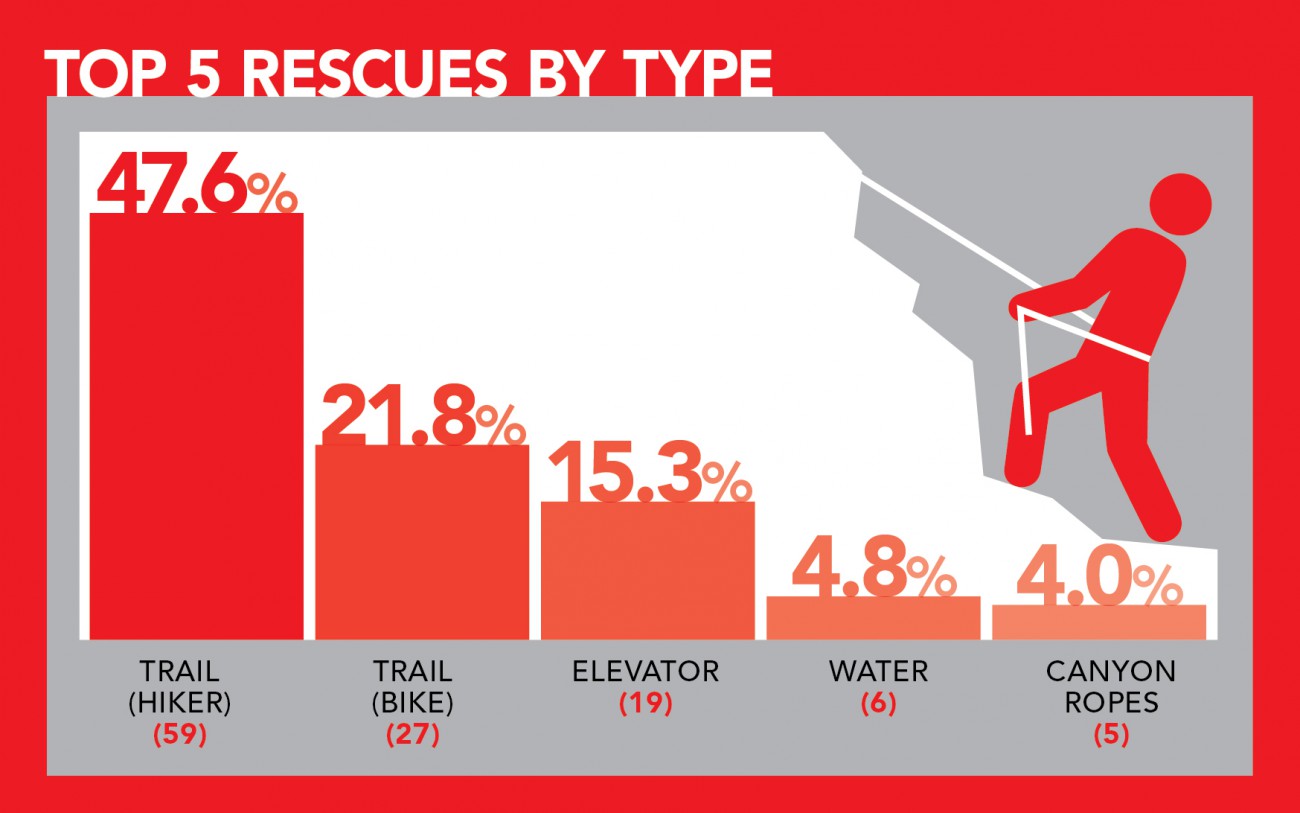
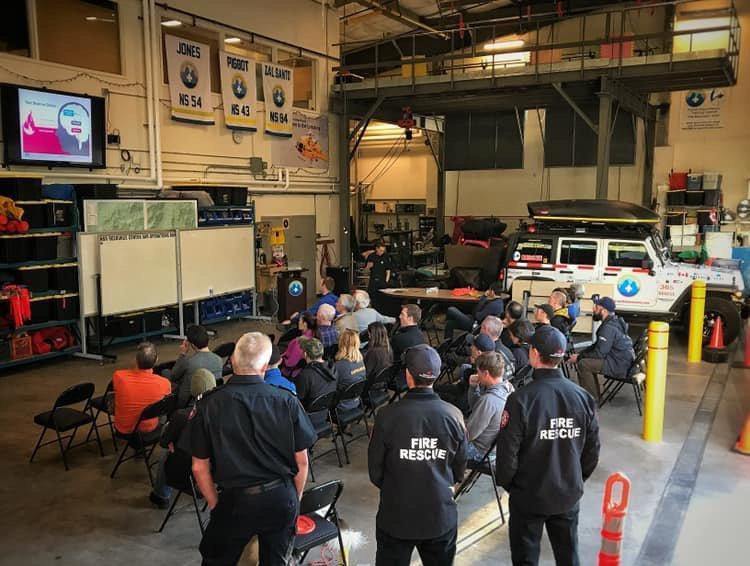 Working with North Shore Rescue
Working with North Shore Rescue
When responding to wildland search and rescues, as well as technical, trail, and water rescues that occur in the District of North Vancouver, we immediately contact North Shore Rescue (NSR) to coordinate our response and ensure that each agency is aware of the incident.
Our working relationship with NSR allows us to capitalize on the skill sets of both of our agencies to best serve residents and visitors, while providing an efficient and coordinated response to all wildland emergencies on the North Shore.
We also work collaboratively to exchange information and host training programs that focus on our respective strengths as repose agencies.
This year, DNVFRS members provided mental health training to NSR members and NSR provided GPS patient location training to DNVFRS. We also trained together on search and rescue helicopter operations to better define the roles of our two agencies.
Moving forward, we plan to provide supplemental rope rescue and medical training to NSR, and offer more patient location and helicopter operations training opportunities. You can read more about the life-saving services that North Shore Rescue provides on their website.
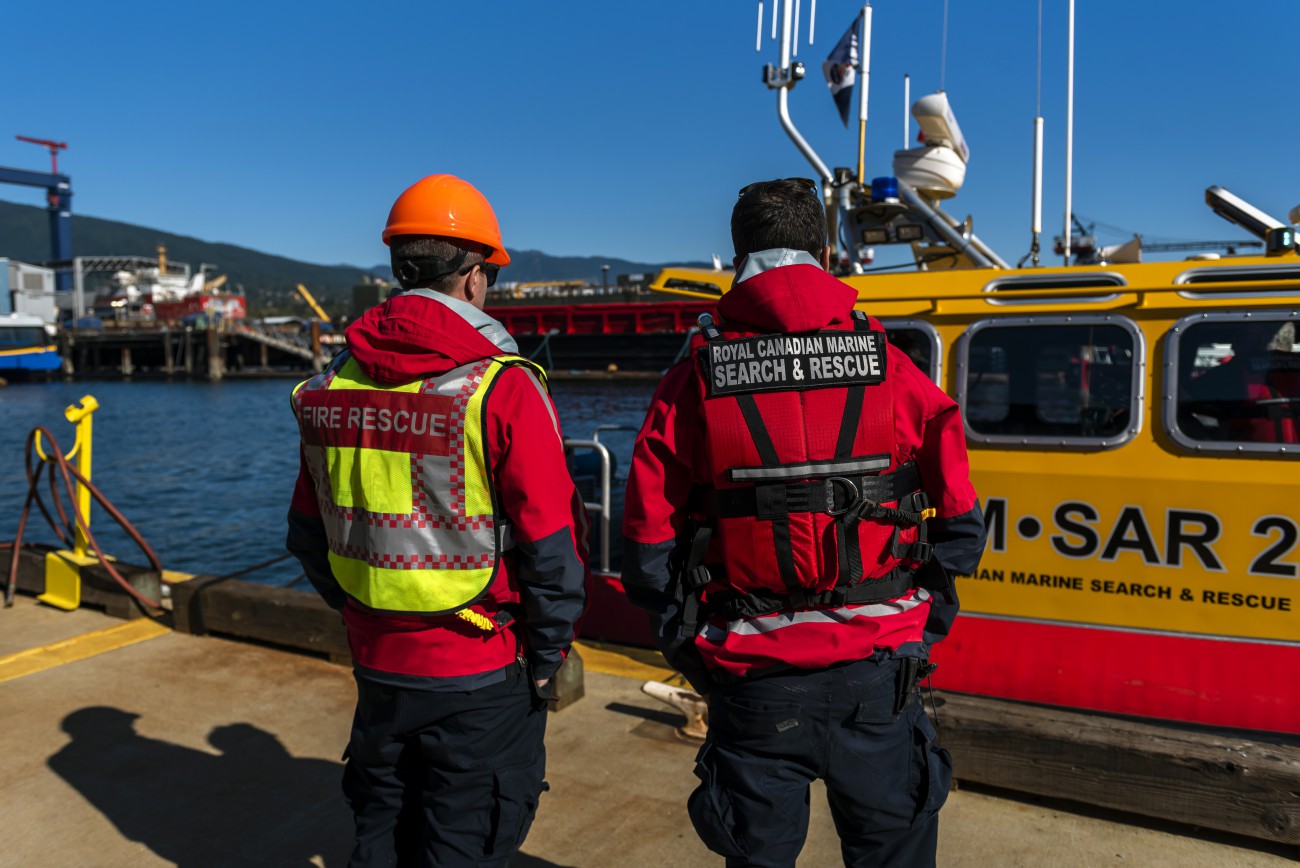 Responding to Marine Emergencies with Royal Canadian Marine Search and Rescue
Responding to Marine Emergencies with Royal Canadian Marine Search and Rescue
We work with Royal Canadian Marine Search and Rescue (RCM-SAR) on all marine and waterfront emergency responses in the District of North Vancouver.
This includes transporting firefighters and equipment to remote and boat only access locations, providing water based information and intelligence for shore based emergency operations, and performing water rescues in areas that are inaccessible by DNVFRS firefighters.
As with our other partner agencies, we work closely with RCM-SAR to share information and provide training that capitalizes on the strengths of each agency.
In 2019, DNVFRS provided medical, rope rescue and self-contained breathing apparatus training to members of RCM-SAR.
RCM-SAR members from both the North Vancouver and West Vancouver Stations also participated in all three marine firefighting training courses hosted at Seaspan Vancouver Shipyards this year. In return, RCM-SAR has provided DNVFRS members with boat safety and fleet response capability awareness training. Discover more about how Royal Canadian Marine Search and Rescue saves lives on the water.
